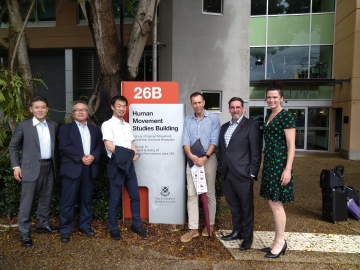We are pleased to announce that the Center for Positive/Empirical Analysis of Political Economy and Waseda Institute for Advanced Study will be inviting Professor Régis Dandoy (Universidad San Francisco de Quito) to hold a seminar on October 18, 2022, titled “Electronic voting in Japan. What can we learn from the European and Latin American experiences?”
“Electronic voting in Japan. What can we learn from the European and Latin American experiences?”
- Speaker:
Régis Dandoy (Professor, Universidad San Francisco de Quito) - Date and Time:
Tuesday, October 18, 2022, 16:30-18:00 JST - Venue (both in-person and on Zoom):
Waseda University, Waseda Campus, Building 3, Room 704
Zoom link:
https://list-waseda-jp.zoom.us/j/93151258005?pwd=bkZnb3BuWVlEa1ZTSjJtZ09pMS9EUT09
Meeting ID: 931 5125 8005
Passcode: 123456 - Language:
English - Open to members of Waseda University and the general public. Free admission. Registration NOT required.
Abstract
Political scientists recognize that the design of ballots can influence voting behavior, but they do not have sufficient knowledge of the impact on voters of using machines rather than paper. Electronic voting at the polls remains limited to a few countries (mainly Belgium, Brazil, India, and the United States) and often remains peripheral (e.g., Canada, France, Japan, and Peru). Most previous studies have focused on specific countries or elections, and comparative studies are very few. This seminar aims at contributing to a new understanding of the impact of electronic voting on voter behavior by delving into the Japanese case and comparing it with other cases.
In Japan, about a dozen municipalities have implemented e-voting for more than a decade. However, there is a lack of a comprehensive analysis of all e-voting in Japan from a political science perspective. More importantly, it has never been systematically compared with other countries that employ exactly the same type of electronic voting machines as Japan. Based on a quantitative analysis of all elections that have adopted electronic voting in Japan since 2002, this seminar assesses the impact of e-voting on voting behavior (compared to paper-based voting). In addition, Japan’s experience with electronic voting will be compared with that of other countries that have adopted similar electronic voting technologies. This seminar will discuss whether electronic voting has a similar impact on voting behavior in Japan and in other countries.
Short biography of Professor Régis Dandoy
Régis Dandoy is International Research Fellow of the Japan Society for the Promotion of Science (Invitational Fellowship for Research in Japan (Long-Term)), Professor of Comparative Politics, and Jean Monnet Chair and Head of the Political Science department at the Universidad San Francisco de Quito (Ecuador). He is also an adjunct researcher at the Waseda University Institute for Advanced Study (WIAS), associate researcher at the Université Libre de Bruxelles (Belgium) and at the United Nations University Institute on Comparative Regional Integration Studies (UNU-CRIS).
Prof. Dandoy has a profound experience in the comparative analysis of electronic voting and its impact on voting behavior. He has published his research on electronic voting in Belgium, France and Ecuador and is currently investigating electronic voting in Paraguay, Peru and the United Kingdom. He gave lectures on e-voting and e-democracy in several universities and has trained election administration staff in various countries. He has collaborated with the Ecuadorian National Electoral Council on the evaluation of electronic voting and with the Belgian Ministry of Interior Affairs on the implementation of Internet voting. He has participated in election monitoring missions in the Dominican Republic, Ecuador, and Paraguay, with a specific focus on the observation of e-voting.
Organizer:
Prof. Airo Hino, Faculty of Political Science and Economics
([email protected])
Sponsored by the Center for Positive/Empirical Analysis of Political Economy, Waseda Institute for Advanced Study (WIAS).








